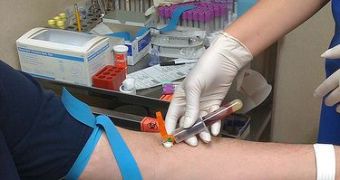Wouldn't it be something if with a simple blood test doctors knew is someone is feeling down or has severe psychological problems? If it were the case, then maybe many suicides could be prevented and people with problems could find someone that actually pays attention. Well, Dutch researchers found a way of detecting MDD (major depressive disorder) through a blood test.
Blood tests are crucial in establishing diagnosis and treatment for most diseases. Still, until now, psychiatry was an area that did not have any use for them. There are several scientific fields that could generate blood tests for psychiatric purposes, among which genetics, the study of DNA and proteomics variations and gene expression profiling, that uses RNA levels as indicators of the actions of particular genes.
Dutch scientists used this last approach to analyze blood gene expression profiles in healthy and MDD diagnosed people. The tests identified a series of seven genes that can be used to differentiate healthy individuals from patients with major depressive disorders that did not follow any medication.
“It is far too early to be confident that gene expression profiling will lead us to diagnostic or prognostic tests for depression. However, the objective of this line of research is extremely important,” stated Dr. John Krystal, Editor of Biological Psychiatry. “In the past, many types of tests have been explored as potential diagnostic markers, but they all have failed to have sufficient sensitivity and specificity to guide doctors in making psychiatric diagnoses or choosing between treatments. I look forward to seeing whether the patterns of gene expression profiling are replicable and diagnostically specific as multiple groups report their findings.”
Even though psychiatry has specific methods of detecting and diagnosing mental health problems, this kind of test would be incontestable and extremely valuable in evaluating more difficult cases.
“This is a first, but major step in providing a molecular diagnostic tool for depression,” corresponding author of the study Dr Sabine Spijker, said, in the article published by AlphaGalileo.

 14 DAY TRIAL //
14 DAY TRIAL //